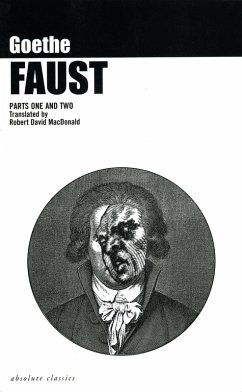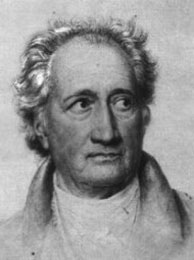The power and magic of the Faust story, the man who, in a pact with the Devil, trades his soul in return for a period of total knowledge and absolute power, is one of the most potent of all European myths. Johann Wolfgang von Goethe (1749-1832) worked on this poetic drama in bursts from his twenties until the end of his life. He reshaped the perpetually fascinating legend, probing the nature and process of human striving and questioning the assumed divisins between the forces of good and evil. His Faust has become a landmark in world literature.
Robert David MacDonald's translation of Faust, used in acclaimed productions in Scotland (Glasgow Citizens') and England (Lyric Hammersmith), offers access to the play in the English language for readers and playgoers alike and opens up the extraordinary range and pace of Goethe's language, rhythms, imagery and ideas, without sacrificing any of the play's humour. The Open University has adopted the translation as a set book for the course entitled 'From Enlightenment to Romanticism'.
Robert David MacDonald's translation of Faust, used in acclaimed productions in Scotland (Glasgow Citizens') and England (Lyric Hammersmith), offers access to the play in the English language for readers and playgoers alike and opens up the extraordinary range and pace of Goethe's language, rhythms, imagery and ideas, without sacrificing any of the play's humour. The Open University has adopted the translation as a set book for the course entitled 'From Enlightenment to Romanticism'.



